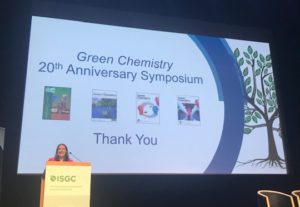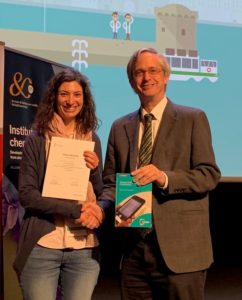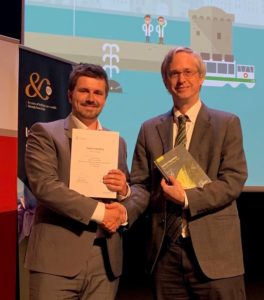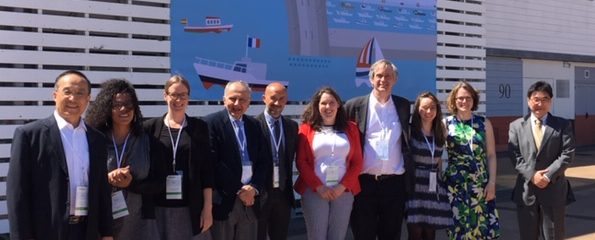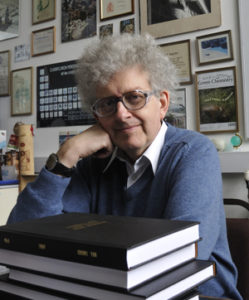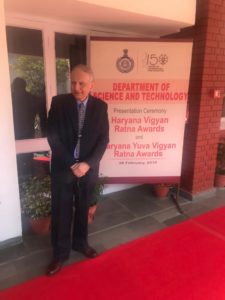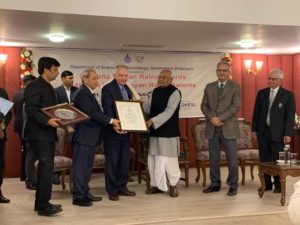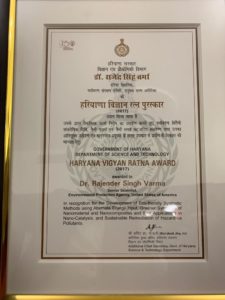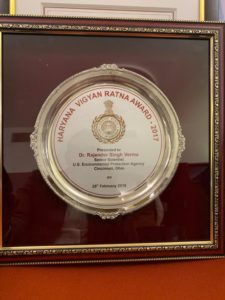George Washington University students in the MS Program in Environmental and Green Chemistry present assessments on TSCA’s 20 low risk chemicals
On May 8th, undergraduate chemistry majors, doctoral chemistry students and master’s students taking Chemical Toxicology and Safer Chemical Design at The George Washington University, presented their final projects. They assessed hazards of 20 low-priority chemicals under the amended Toxic Substances Control Act (TSCA) and recommended whether to support or challenge the low-risk claim to key stakeholders in the DC area: United States Environmental Protection Agency, American Chemistry Council, Natural Resources Defense Council and the ACS Green Chemistry Institute.
GWU’s new program in Environmental and Green Chemistry offers a unique curriculum, focusing on safer chemical and process design. It aims to train the next generation of chemists to make chemicals society needs but mitigate the potentially adverse effects on human and environmental health through better design.
The students’ projects offered a critical survey of all the publicly available information about the 20 chemicals in question, including identifying critical data gaps such as those for chronic health endpoints like cancer and developmental toxicity, safety considerations related to manufacturing, and potential metabolites. In cases with important data gaps or for experimental studies with low reliability, the students showcased their technical training with predictive toxicology tools and read-across approaches to make informed decisions. Understanding that chemicals cannot be assessed in isolation, the students’ decision also considered safety related to manufacturing processes and potential metabolites.
The presentations offered tremendous value to the community since the US EPA must have a defined minimum level of evidence to determine that a chemical is without risk of harm under the amended TSCA policy. Crucially, the assessments showed that a comprehensive assessment cannot be reliably conducted by non-experts nor by chemists or toxicologists alone; one must have solid training in both disciplines to tackle this challenge. In the subsequent Q&A session, the students gained a deeper and more realistic understanding of how chemical hazard information is used by lawmakers and regulatory agencies to make decisions that impact public health and environmental protection.
This project helped lift the veil for the students on the process of turning science into policy. By understanding this extremely complicated process, it will help them in their future work to conduct research and provide expert opinions that will be most useful for policy decisions, hopefully with the goal of advancing safer and more sustainable chemistry.













